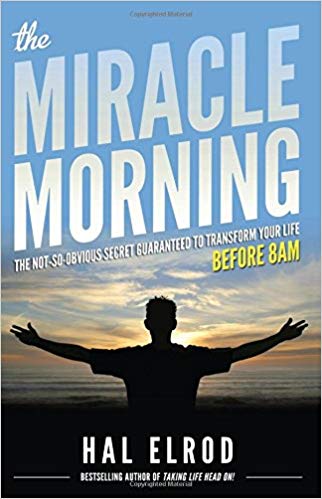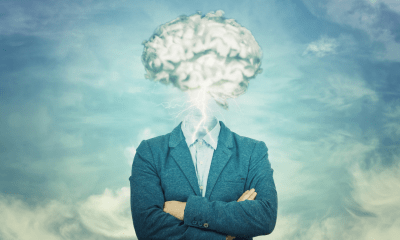Sleep is even more important than you think. It’s about far more than just waking up feeling rested. It affects nearly every single tissue in your body.
It affects everything from stress hormones to how your immune system works. Your growth hormones, blood pressure, appetite, cardiovascular health, even breathing, are affected by sleep.

Miracle Morning
by Hal Elrod
⏱ 12 minutes reading time
🎧 Audio version available
Sleep Deprivation Results in Accidents
The number one thing sleep does is– to put it mildly– refresh you. While you’re off in dreamland, your body works overtime to repair cells, restore your energy, and release proteins and hormones. It stores all the new information you learned throughout the day and dumps the waste. Your nerve cells reorganize themselves. A lot happens.
When you take away that opportunity, you’re disrupting the processes that are supposed to happen.
Feeling groggy and tired aren’t the worst things your body experiences. Lack of sleep negatively impacts your ability to pay attention, reason, concentrate, solve problems, and stay alert.
Sure, you may get more done if you skimp on sleep, but did you know that in the long-term, the effects are beyond detrimental? Some of the largest, worst disasters in history were caused by sleep deprivation and its consequent lack of focus. That includes the nuclear accident at Three Mile Island in 1979, and the 1986 nuclear Chernobyl incident.
Sleep deprivation doesn’t necessarily have to cause a world-famous disaster, but it can cause devastating effects all the same. A sleep-deprived person on the road is a public safety hazard. It’s as bad as drunk driving since it ruins your reaction times.
Data from the National Highway Traffic Safety Administration shows that drowsiness causes 100,000 auto crashes every year, as well as 1,550 crash-related deaths. Believe it or not, people under the age of 25 cause most of them.
Not to mention the number of work accidents that occur because of a sleep-deprived individual.
Lack of Sleep Makes You Forgetful
Something as “little” as forgoing a few hours of sleep each night can have an effect as dangerous as gradually becoming more and more forgetful. See, during the night, sleep cycles work on consolidating your memories.
A brain event called “sharp wave ripples,” which occurs mostly during the deepest levels of sleep is responsible for this consolidation. When you aren’t getting enough sleep, it isn’t able to do that, and as a result, you won’t be able to remember the things you experienced and learned earlier.
Your Health Suffers
Soon enough, sleep deprivation leads to more than forgetting details and messing up at work. Your health will start to decline. You’re at risk of diabetes, for one thing. And then it escalates into things like heart disease, heart attacks, heart failure, and irregular heartbeat. You’re also at risk of suffering from stroke and high blood pressure.
It Causes Depression
In a study that featured 10,000 people, those who suffered from insomnia are five times as likely to develop depression as those who don’t. Adding to that, insomnia is often found to be one of the first symptoms of depression.
In 2005, a Sleep in America poll found that people who had depression or anxiety were more likely to get less than six hours of sleep a night.
So, depression and insomnia work off each other. Lack of sleep triggers or makes symptoms of depression more intense while depression makes falling asleep a dreaded chore. On a bright note! When you treat one, it helps minimize the symptoms of the other.
Lack of Sleep Makes You Age Faster
Ever look at yourself in the mirror and find dark circles under your eyes? Puffy eyes, perhaps? Or your skin may look the opposite of lively and refreshed. Chronic sleep loss may result in more than shadows under your eyes.
When you’re asleep, your body works on rejuvenating your skin as well. So, when you don’t get enough sleep, your body gets stressed and releases unreasonably large amounts of the stress hormone, cortisol. If cortisol is released in excessive amounts, it can break down collagen, which is the protein that keeps your skin looking smooth.
Your body releases growth hormones when you’re deeply asleep, in what’s called “slow-wave sleep”.
So, even your growth hormones, which are supposed to strengthen your bones and increase your muscle mass, are negatively impacted by lack of sleep.
Lack of Sleep Impairs Your Judgment
What if we told you that there comes a point when you’re so sleep-deprived that you can’t properly judge how impaired your judgment is?
Extreme sleep loss alters the way we interpret reality and its events. We eventually reach a point when we can’t view a situation and react properly and reasonably. What’s worse is that you get so used to sleep deprivation that it feels like the new norm, so you can’t even tell how out of balance you are.
Before we get into the amazing effects of sleep, let’s first discuss how we can “unlock” these benefits. How much sleep do you really need?
Eight hours is a nice average for what most people need. You need around seven to nine hours to function properly throughout the day. However, there is no amount of sleep that works for everyone the same. Some people need less while others require more.
Now, once you figure out the adequate amount of sleep needed, here are the incredible effects of sleep. Here, the fact that sleep is just as important as exercising and eating healthy is a good thing.
A Healthier Body
A lack of sleep results in a mile-long list of health issues, as we’ve already mentioned. Well, the right amount of sleep can result in a plethora of benefits, including, but not limited to, having a healthier heart.
Let’s say you’re asleep right now. Your body is working on lowering your blood pressure to give your heart the rest it needs, as well as your blood vessels. So, if you don’t sleep, your blood pressure isn’t being as well regulated, which leads to heart disease.
Sleep also works on preventing diabetes. When you don’t sleep, or sleep badly, your body may change the way it processes glucose– which you need for energy and can lead to type 2 diabetes.
It Does Wonders for Your Mental Health
A lack of sleep results in depression, stress, and anxiety, but consistent quality sleep can equally affect your mental wellbeing. In this case, it boosts it.
Getting more than six hours of sleep a night is integral for waking up in a good mood. While you sleep, your brain processes your memories and emotions. And it needs enough time to do so. When you stop giving it that time, you start to experience more negative reactions and fewer positive emotions.
It Improves Your Productivity
If you thought that staying up all night to study or finish a project was the only way, you clearly haven’t seen what consistently getting enough sleep can do. All this talk of brain functions and what happens to your body when you’re asleep amounts to this: sleep improves your cognitive processes, your concentration, and your overall performance.
One study took a look at several medical interns. Those who worked a usual schedule with extended hours of over 24 hours made 36% more medical errors, especially serious ones, than the interns that had a schedule that allowed them to get enough sleep.
So having a good night’s sleep can dramatically improve your performance and your problem-solving skills.
It Can Make You the Athlete of the Year
This may be an exaggeration, but getting a good amount of sleep can maximize your athletic performance. You won’t win any Olympics by sleeping, but your athletic performance is more likely to dramatically enhance.
One study showed that basketball players saw improved speed, reaction time, accuracy, and mental health as they got enough sleep. On the other hand, lack of sleep can result in poor exercise performance, as well as functional limitation. It’s been linked to lower grip strength, difficulty performing activities, and even slower walking speed.
What Is Snapreads?

With the Snapreads app, you get the key insights from the best nonfiction books in minutes, not hours or days. Our experts transform these books into quick, memorable, easy-to-understand insights you can read when you have the time or listen to them on the go.



